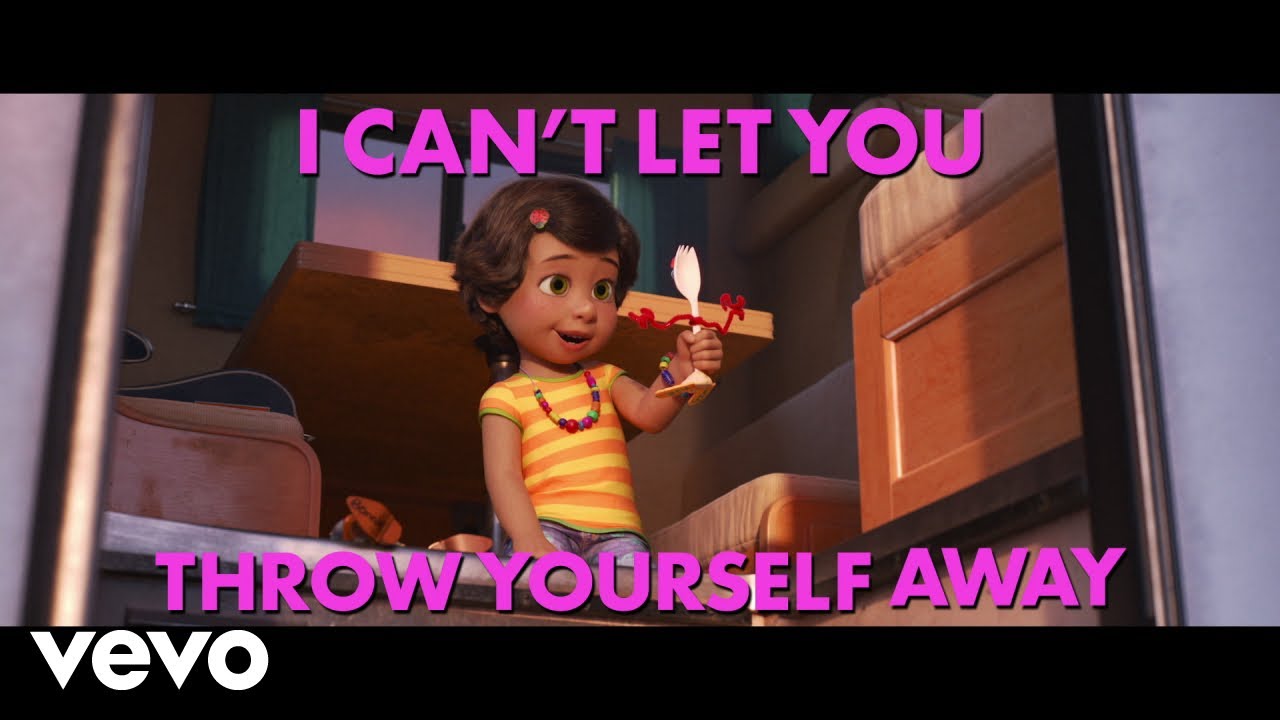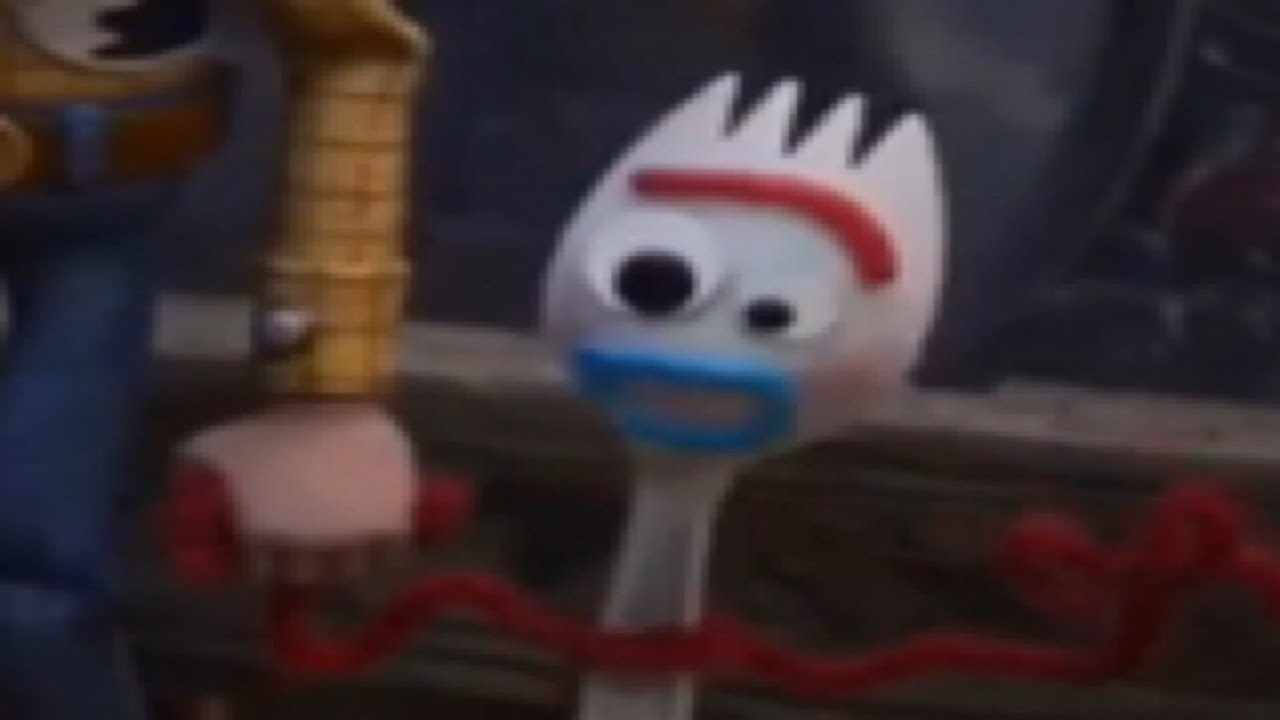
Toy Story was the first movie I saw in theaters and most of my childhood toys resembled what was in Andy’s room. The third movie came out when most of us were entering or leaving college, including myself. Toy Story 3 came as many of us were moving on like Andy, bittersweetly giving away our beloved toys and heading into the real world. Now, the fourth installment in the franchise, Toy Story 4, introduces us to a slew of new toys and as someone who has consistently seen themselves in various toys over the years, I wasn’t surprised that I felt seen again. But, I was surprised I felt seen in the toy Bonnie, the young girl Andy gives his toys to at the end of Toy Story 3, creates from literal trash, Forky.
Forky is created by Bonnie during her Kindergarten orientation. He is hastily constructed from a spork, found in the trash, molding clay, pipe cleaners, and googly eyes. Voiced by Tony Hale (Arrested Development), Forky is clearly designed to be comedy relief, something that was pulled off much better than Keegan-Michael Key and Jordan Peele‘s Ducky and Bunny.
Following his creation, Forky immediately has what can only be referred to as an existential crisis, a moment at which an individual – or in this case toy – questions their life has meaning, purpose, or value. Forky cannot accept his role as a toy and instead spends the first 15 minutes of the movie trying to dispose of himself, most notably in a scene that backed by one of Toy Story 4‘s original songs, “I Can’t Let You Throw Yourself Away” by Toy Story veteran Randy Newman.
But despite the toe-tapping tune, the entire theme of Toy Story 4, not just Forky’s character arc, is about serious and at times debilitating existential crises and the various times in our life we have them. The movie mostly focuses on Woody’s (Tom Hanks) version of being an empty nester, a phenomenon in which parents experience feelings of sadness and loss when the last child leaves home. But Forky’s crisis is different and hits much closer to home. Forky’s inability to see his own value and accept that he is a toy who deserves the love of a child, despite constant reassurance from Woody and the other toys, felt a lot like my dealings with imposter syndrome.
Imposter Syndrome, also known as imposter phenomenon, according to a report in the International Journal of Behavioral Science, is when a person “experience[s] intense feelings that their achievements are underserved and that they’re likely to be exposed as a fraud.” While it is not an official diagnosis, according to psychologists and others, it is a very real and specific form of intellectual self-doubt. Additionally, impostor feelings are generally accompanied by anxiety and, often, depression.
Nearly everyone I know has dealt with imposter syndrome which makes sense considering a study from 2011 in the International Journal of Behavioral Science found that 70 percent of people will experience at least one episode of imposter syndrome within their lifetimes. For me, imposter syndrome is a daily thing. I never fully believe I belong where I am. Every single day there is part of me that does not feel qualified to write and edit for the site you are currently reading this on, manage this site’s social media and work in marketing in the real world despite having a degree in Public Relations and at this point almost five years experience in the marketing sector.
My imposter syndrome comes with debilitating doubt, something I am working on. And one of the biggest symptoms is that after one mistake I am willing to completely throw myself or my work out. Despite being an editor and reminding my fellow contributors that rough drafts are called rough for a reason, I can’t take my own advice. Too many edits or pieces of constructive criticism and I panic, convincing myself in the words of Forky, “I’m trash.”
Similar to myself, even when he is excelling at being a toy, frequently becoming the toy Bonnie plays with the most and even sleeps with, he still believes he is trash. Forky will do anything he can to get into a trash can. He is uncomfortable with the change in his environment and like many people in my generation, feels like he doesn’t belong – both in his job as a toy and as a being who is now alive.
While in Toy Story 4‘s logic, this is because he was created from trash, it still isn’t surprising so many people have latched on to his character. Forky’s existential crisis and the deadpan delivery from Hale feels familiar because it is how so many of us, myself included, hide behind our imposter syndrome, with humor. But unfortunately, that is not the right way to really tackle the feelings of self-doubt so many of us experience.
After jumping out of the RV and being found by Woody, Forky realizes he is important to Bonnie and his work, albeit as a toy, matters. After listening to the advice of Woody and having time for self-reflection away from Bonnie, Forky finally accepts himself as a toy and the noblest thing a toy can do is be there for their kid. Forky realizes he is qualified to be a toy because his job as a toy matters so much to Bonnie.
I am not a toy but I am working every day to accept that what I do matters and because I am doing it, I belong here. Forky was thrown into his job, he adapted, and continues learning. I learn something every day whether it be about my field or myself. But overall, I am learning my work, my experience, my sense of humor, and my voice in this community matters and despite feeling like I am on shaky ground, much like Forky, I am qualified to be here.








